Americans Are Drinking Less — Why That’s a Good Thing
Recent data shows that per capita alcohol consumption in the U.S. has dropped steadily, with a 7% decrease in beer sales and a 4% drop in spirits sales in 2023 (NPR). This shift is significant, as alcohol is linked to numerous health concerns, particularly liver disease and neurological disorders (CDC). Despite these risks, many Americans still underestimate the dangers posed by even moderate drinking, underscoring the need for greater public awareness about alcohol’s true impact.
1. Lower Risk of Liver Disease

Reducing alcohol consumption directly benefits liver health, particularly by lowering the risk of developing liver cirrhosis—a chronic, potentially fatal condition where healthy liver tissue is replaced with scar tissue, hindering the organ’s ability to function. According to the CDC, excessive drinking is one of the leading causes of liver disease in the United States. In countries with higher rates of alcohol consumption, such as Russia and parts of Eastern Europe, rates of liver cirrhosis and related mortality remain significantly higher (WHO).
By choosing to drink less, Americans are actively reducing their risk of liver inflammation and chronic liver conditions. Practical steps for monitoring liver health include routine checkups, blood tests for liver enzymes (such as ALT and AST), and being mindful of symptoms like jaundice, abdominal pain, or unexplained fatigue. Healthcare providers can offer guidance on safe drinking limits and help individuals understand their personal risk factors. Embracing moderation or abstinence not only protects the liver but also improves overall vitality and long-term health outcomes, making reduced alcohol intake a wise choice for many Americans.
2. Improved Heart Health
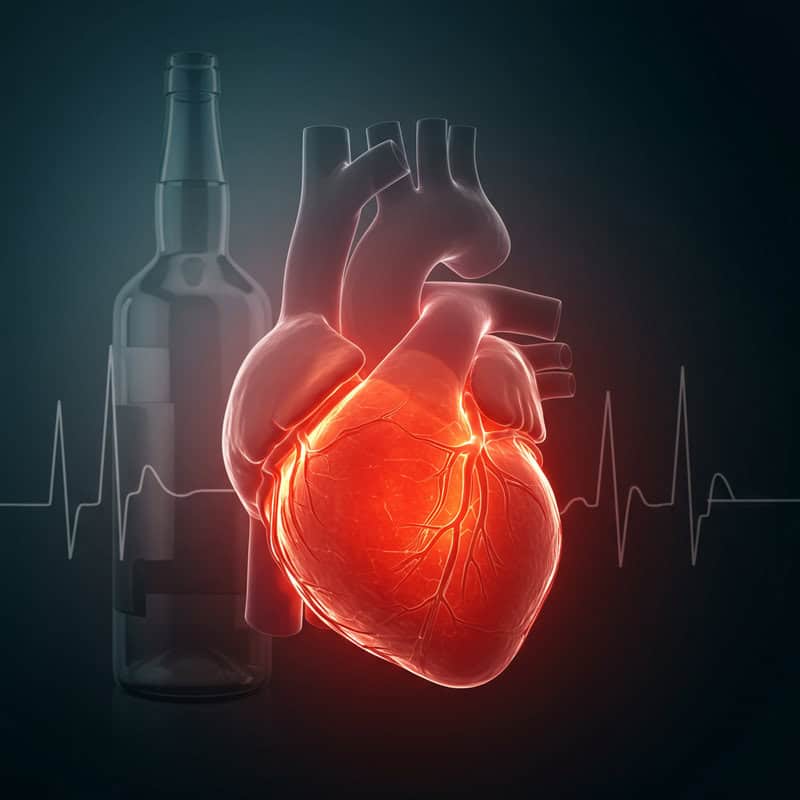
Cutting back on alcohol consumption can significantly improve heart health. Numerous studies have demonstrated a clear association between excessive drinking and increased risk of high blood pressure, irregular heartbeat, stroke, and cardiomyopathy. According to the CDC, reducing alcohol intake lowers the likelihood of developing cardiovascular diseases. A 2023 study published in the JAMA Network Open found that individuals who reduced their alcohol consumption saw measurable improvements in blood pressure and cholesterol levels, both key markers for heart health.
For a real-world comparison, France, known for its historically higher rates of alcohol consumption, has experienced elevated incidences of alcohol-attributable heart conditions compared to countries with lower drinking rates (WHO). Americans drinking less may contribute to the downward trend in heart disease mortality rates. To further protect your heart, experts recommend regular checkups to monitor blood pressure, cholesterol, and heart rhythm. This proactive approach, combined with mindful drinking, can help identify potential issues early and support overall cardiovascular well-being.
3. Decreased Cancer Risk

Reducing alcohol consumption has a profound impact on lowering the risk of developing several types of cancer. According to the American Cancer Society, alcohol is classified as a Group 1 carcinogen and is directly linked to cancers of the mouth, throat (pharynx and larynx), esophagus, liver, colon, rectum, and breast. Research indicates that even moderate alcohol intake can increase breast cancer risk in women, with risks rising proportionally to the amount consumed.
Data shows that approximately 6% of all cancers globally are attributable to alcohol use, with mouth and throat cancers being particularly prominent among drinkers. The risk is compounded when alcohol is combined with tobacco use, further elevating the likelihood of developing oral and throat cancers (National Cancer Institute). To mitigate these risks, the American Cancer Society recommends regular cancer screenings—such as mammograms for breast cancer and oral exams for mouth and throat cancers—especially for those with a history of alcohol use. Staying informed about screening guidelines and maintaining open communication with healthcare providers can greatly improve early detection and long-term outcomes.
4. Better Mental Health

Alcohol consumption is closely linked to mental health challenges, particularly anxiety and depression. While some may initially use alcohol to cope with stress or social anxiety, research consistently shows that regular or heavy drinking can exacerbate symptoms of mood disorders over time. According to the Substance Abuse and Mental Health Services Administration (SAMHSA), individuals with high alcohol use are significantly more likely to experience depression, anxiety, and other mental health issues compared to those who drink little or not at all.
Population-based studies have found that countries and communities with lower alcohol consumption tend to report better overall mental health outcomes. For example, Scandinavian countries, which have implemented strict alcohol policies and seen declining drinking rates, also report lower rates of alcohol-related mental health disorders (National Institutes of Health). Signs that alcohol may be affecting mental health include persistent sadness, irritability, withdrawal from social activities, sleep disturbances, and increased reliance on alcohol to manage mood. Recognizing these signs early and seeking help from a mental health professional can prevent escalation and lead to more effective strategies for coping and resilience.
5. Healthier Weight

Alcohol is a significant source of empty calories, offering little to no nutritional value while contributing to weight gain. According to the Centers for Disease Control and Prevention (CDC), a standard alcoholic drink contains about 100-150 calories, and many mixed drinks or beers can contain significantly more. These calories can add up quickly, especially when alcohol is consumed regularly, leading to an increased risk of overweight and obesity.
The CDC highlights that individuals who drink heavily are more likely to consume excess calories throughout the day, as alcohol can also increase appetite and reduce self-control, leading to unhealthy food choices (CDC Alcohol Use Fact Sheet). To better manage weight, practical steps include tracking both food and beverage calories using digital tools or apps, reading nutrition labels, and setting drink limits. Substituting alcoholic beverages with lower-calorie alternatives, such as sparkling water or herbal teas, can also help reduce overall calorie intake. Being mindful of portion sizes and frequency of consumption makes it easier to maintain a healthy weight and support long-term well-being.
6. Enhanced Sleep Quality

Alcohol is often mistakenly believed to aid sleep, but evidence shows it disrupts normal sleep patterns, particularly by interfering with REM (rapid eye movement) sleep—the stage crucial for memory consolidation and emotional regulation. Studies, such as those published by the Sleep Foundation, reveal that consuming alcohol before bedtime leads to shorter REM cycles and more fragmented sleep. This disruption can result in feelings of grogginess, impaired focus, and irritability the following day.
Research from the National Institutes of Health further supports that even moderate drinking reduces overall sleep quality and increases the likelihood of waking during the night. To improve sleep hygiene, experts recommend avoiding alcohol at least three to four hours before bedtime, maintaining a regular sleep schedule, and creating a calming bedtime routine. Other helpful strategies include minimizing exposure to screens before sleep, keeping the bedroom cool and dark, and practicing relaxation techniques such as deep breathing or meditation. By reducing alcohol intake and prioritizing healthy sleep habits, individuals can experience more restorative and refreshing nights.
7. Stronger Immune Function
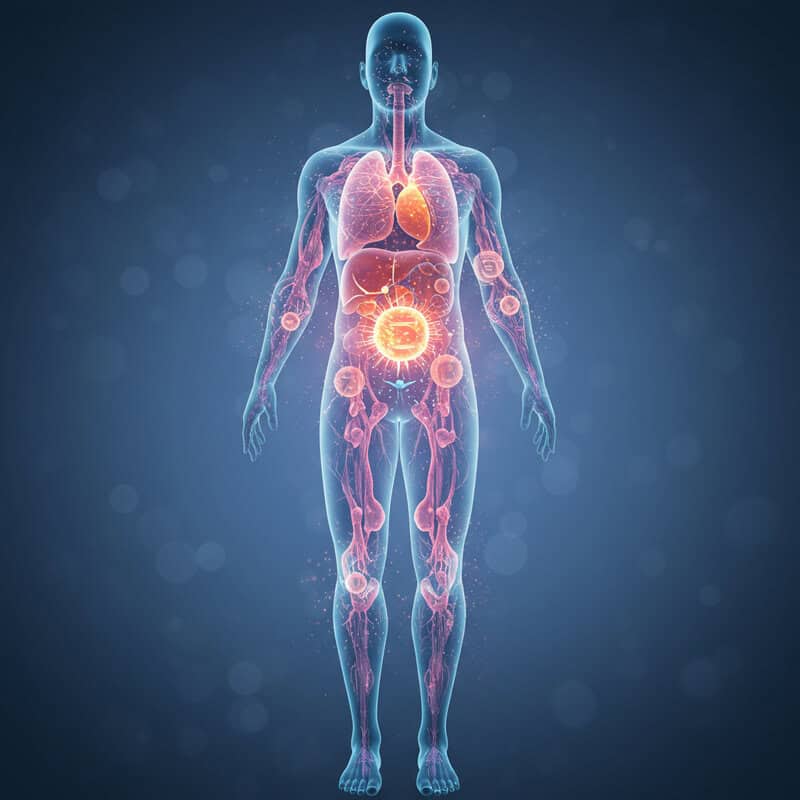
Alcohol consumption negatively affects the body’s immune system, reducing its ability to defend against infections and illnesses. Research from the National Institutes of Health (NIH) shows that alcohol suppresses the production and function of essential immune cells, making individuals more susceptible to both bacterial and viral infections. During flu season, this impairment becomes particularly evident, as people who drink heavily are more likely to experience prolonged and severe symptoms from common illnesses such as the flu or colds (CDC).
To support a strong immune response, reducing or eliminating alcohol is a critical step. Additional strategies include eating a nutrient-rich diet, exercising regularly, staying hydrated, getting adequate sleep, and maintaining up-to-date vaccinations. Practicing good hand hygiene and managing stress are also essential for optimal immune health. For those who want to monitor their immune function, regular checkups with a healthcare provider and discussing any concerns about alcohol use can provide personalized guidance. By making these positive changes, individuals can enhance their body’s natural defenses and reduce their risk of infection year-round.
8. Lower Risk of Accidents

Alcohol is a leading factor in preventable injuries and fatalities, particularly those involving motor vehicles. According to the National Highway Traffic Safety Administration (NHTSA), nearly 32 people die each day in the United States as a result of drunk-driving crashes—about one death every 45 minutes. In 2021 alone, alcohol-impaired driving accounted for 13,384 fatalities, representing 31% of all traffic-related deaths. Beyond car accidents, alcohol increases the risk of falls, drownings, and other unintentional injuries due to impaired coordination, reaction time, and judgment.
Choosing to drink less or abstain altogether significantly lowers the risk of accidents for both individuals and communities. For safer socializing, tips include volunteering as a designated driver, arranging rideshares or public transportation, and offering non-alcoholic beverage options at gatherings. Building a supportive network of friends who respect sober choices can also make social events more inclusive and enjoyable. By prioritizing safety and responsible behavior, individuals help create safer roads and environments for everyone. For additional resources on sober socializing, visit Mothers Against Drunk Driving (MADD).
9. Reduced Risk of Addiction

Alcohol dependence, or alcohol use disorder (AUD), develops when repeated drinking alters brain chemistry, particularly in areas related to reward and impulse control. This can lead to cravings, loss of control over drinking, and withdrawal symptoms when not consuming alcohol. According to the National Institute on Alcohol Abuse and Alcoholism (NIAAA), about 29.5 million Americans ages 12 and older had AUD in 2021. Countries with higher rates of alcohol consumption, such as Russia and the United Kingdom, also report higher incidences of addiction and alcohol-related health problems (WHO).
By reducing alcohol intake, individuals significantly lower their risk of developing dependence and the accompanying physical, mental, and social consequences. Recognizing early signs—such as increased tolerance, drinking alone, neglecting responsibilities, or unsuccessful attempts to cut back—is crucial. For those seeking help, resources like the SAMHSA National Helpline and local support groups such as Alcoholics Anonymous offer confidential assistance and community support. Taking proactive steps to limit alcohol use is a powerful way to protect long-term health and well-being.
10. Stronger Relationships

Alcohol misuse can be a significant source of tension and conflict in relationships, affecting families, friendships, and romantic partnerships. Excessive drinking is linked to communication breakdowns, increased arguments, neglect of responsibilities, and even domestic violence. The National Institutes of Health highlights that households with a member who has alcohol use disorder often experience higher rates of emotional distress, divorce, and child behavioral issues compared to families with low or no alcohol use.
Real-life comparisons show that communities and families with lower alcohol consumption generally report higher relationship satisfaction and cohesion. For example, studies have found that couples who drink moderately or abstain are less likely to encounter recurring conflicts and more likely to report mutual trust and support (Psychology Today). To strengthen relationships, open and honest communication is key. Tips include setting boundaries around alcohol use, expressing concerns without blame, and seeking compromise. Couples or families can benefit from spending quality time together in alcohol-free settings and reaching out to counselors or support groups if challenges persist. Prioritizing healthy communication and shared activities fosters trust, connection, and resilience.
11. Improved Productivity

Alcohol consumption can have a marked effect on workplace performance, often leading to decreased productivity, impaired decision-making, and increased absenteeism. According to the Centers for Disease Control and Prevention (CDC), excessive drinking contributes to more than 232 million missed workdays annually in the United States, as employees may call in sick or underperform due to hangovers and related health issues. Even moderate drinking can result in reduced concentration, slower reaction times, and difficulty meeting deadlines.
Data from the Substance Abuse and Mental Health Services Administration (SAMHSA) shows that workplaces with higher rates of alcohol misuse experience lower morale and higher turnover, which can disrupt team dynamics and productivity. To maintain focus and excel at work, practical strategies include setting clear personal limits on alcohol consumption, prioritizing a healthy sleep schedule, and engaging in activities that promote mental alertness, such as exercise or mindfulness practices. Employers can also support productivity by fostering alcohol-free events and providing access to employee assistance programs. Taking proactive steps to reduce alcohol use can help individuals achieve their professional goals and contribute positively to the workplace environment.
12. Better Skin Health

Alcohol consumption is known to dehydrate the body, and the skin is often one of the first areas to show visible effects. Dehydration caused by alcohol leads to dryness, dullness, and an increased appearance of fine lines and wrinkles. According to the American Academy of Dermatology (AAD), alcohol can also worsen skin conditions such as rosacea, causing flare-ups, redness, and irritation. Those with sensitive or acne-prone skin may notice more frequent breakouts and uneven skin tone after periods of heavy drinking.
Before-and-after scenarios demonstrate that individuals who reduce or eliminate alcohol intake often see improvements in skin clarity, hydration, and overall complexion. Within just a few weeks of abstaining, many report a healthier glow, reduced puffiness, and fewer blemishes (Healthline). To enhance skin health, it is important to stay well-hydrated by drinking plenty of water, using moisturizers, and incorporating antioxidant-rich foods into the diet. Practicing a gentle skincare routine and avoiding harsh products can further support recovery from the effects of alcohol. These proactive steps help restore the skin’s natural barrier and promote a more youthful appearance.
13. Financial Savings

Regular alcohol consumption can place a significant strain on personal finances. According to a survey by the Bureau of Labor Statistics, the average American household spent over $500 annually on alcoholic beverages in 2021, with some individuals spending much more, especially when factoring in expenses from bars, restaurants, and social events. These costs can quickly accumulate, diverting funds from savings, investments, or essential living expenses.
Comparisons show that people who limit or abstain from alcohol often find themselves with extra disposable income, leading to healthier financial habits and greater financial security. For example, replacing a $10 weekly bar tab with savings or investments can add up to over $500 per year. To manage spending, practical budgeting advice includes tracking alcohol-related purchases, setting monthly spending limits, and seeking out cost-free or low-cost social activities. Using budgeting apps or spreadsheets can help visualize savings and redirect funds toward meaningful goals, such as travel, education, or emergency funds. By choosing to drink less, individuals not only improve their health but also gain greater control over their finances and future opportunities.
14. Healthier Digestive System

Alcohol can have a disruptive effect on the digestive system, irritating the stomach lining and altering the balance of gut bacteria. Studies published by the American Gastroenterological Association indicate that regular alcohol consumption increases the risk of gastritis, acid reflux, and ulcers by weakening the protective mucous layer of the stomach. Alcohol also impairs nutrient absorption and can lead to inflammation throughout the gastrointestinal (GI) tract.
Research shows that excessive drinking may contribute to conditions such as irritable bowel syndrome (IBS) and disrupt the gut microbiome, which plays a crucial role in immune function and overall health (National Institutes of Health). To promote digestive wellness, experts recommend limiting alcohol intake, eating a fiber-rich diet, staying hydrated, and incorporating probiotic foods like yogurt or kefir. Practicing mindful eating, managing stress, and avoiding late-night meals can also support gut health. By making these adjustments and reducing alcohol use, individuals often experience less bloating, improved digestion, and better absorption of essential nutrients, leading to enhanced comfort and vitality.
15. Enhanced Athletic Performance

Alcohol consumption can significantly impair athletic performance by slowing reaction times, reducing coordination, and hindering muscle recovery. According to the National Institutes of Health, alcohol acts as a central nervous system depressant, which delays reflexes and decision-making—factors critical for both amateur and professional athletes. Furthermore, alcohol disrupts protein synthesis and dehydrates the body, making post-exercise muscle repair slower and less effective.
Studies comparing athletes who drink regularly with those who abstain reveal that nondrinkers tend to recover faster, experience fewer injuries, and maintain superior endurance and strength (Sports Medicine – Open). For individuals leading active lifestyles, it’s advisable to prioritize hydration, avoid alcohol before or after intense workouts, and focus on a balanced diet rich in lean protein, complex carbohydrates, and antioxidants. Scheduling rest days and engaging in proper stretching routines also foster optimal recovery. By reducing or eliminating alcohol, athletes and fitness enthusiasts can maximize their training results, boost energy levels, and achieve their physical goals more effectively.
16. Reduced Inflammation
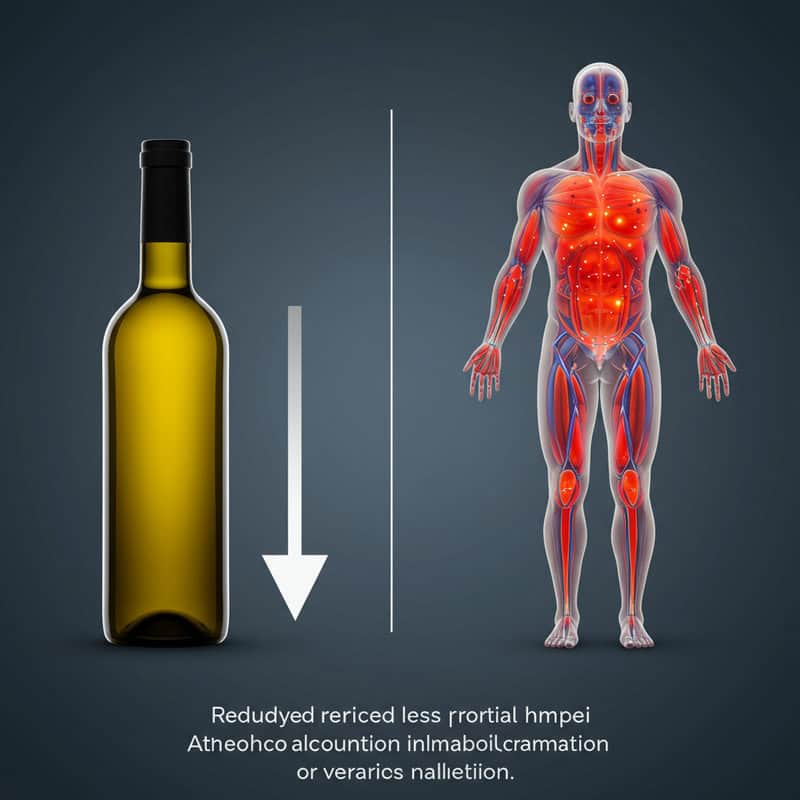
Alcohol is known to have pro-inflammatory effects in the body, which can contribute to a wide range of chronic diseases. Research from the National Institutes of Health shows that alcohol consumption triggers the release of inflammatory cytokines, leading to tissue damage and increased susceptibility to conditions such as arthritis, cardiovascular disease, and metabolic syndrome. Chronic inflammation associated with alcohol use can also worsen symptoms of autoimmune disorders and impede the body’s natural healing processes.
In studies examining inflammation markers, individuals who reduced or abstained from alcohol demonstrated significantly lower levels of C-reactive protein (CRP) and other indicators of systemic inflammation (Frontiers in Immunology). To further combat inflammation, experts recommend adopting anti-inflammatory habits such as consuming a diet rich in fruits, vegetables, whole grains, and healthy fats like omega-3s. Regular physical activity, adequate sleep, and stress management techniques like meditation or yoga also support lower inflammation levels. By limiting alcohol intake and embracing these healthy lifestyle choices, individuals can reduce their risk of chronic disease and promote overall wellness.
17. Lower Blood Pressure

Alcohol consumption is a well-established risk factor for hypertension, or high blood pressure. Studies have shown that even moderate alcohol intake can cause temporary spikes in blood pressure, and habitual drinking contributes to sustained hypertension over time. The American Heart Association reports that reducing alcohol intake is one of the most effective lifestyle changes for lowering blood pressure and decreasing the risk of heart attack and stroke. Research published in the journal Hypertension found that adults who cut back on alcohol experienced significant improvements in both systolic and diastolic blood pressure readings.
To manage blood pressure effectively, experts recommend keeping alcohol consumption within recommended limits or abstaining entirely. Additional strategies include maintaining a healthy weight, reducing sodium intake, engaging in regular physical activity, and monitoring blood pressure at home. Eating a diet high in fruits, vegetables, and whole grains—such as the DASH diet—can further support cardiovascular health. By lowering alcohol use and adopting these habits, individuals can help prevent hypertension and its associated complications, leading to a longer and healthier life.
18. Sharper Cognitive Function

Alcohol use can have lasting effects on cognitive abilities, including memory, attention, and problem-solving skills. Research indicates that both short-term binge drinking and long-term heavy alcohol consumption can impair neuroplasticity, slow information processing, and increase the risk of dementia. According to the Alzheimer’s Society, people who consistently drink above recommended limits are more likely to experience cognitive decline and memory problems as they age.
Studies comparing cognitive scores of drinkers versus non-drinkers have found that those who limit or avoid alcohol generally perform better on tests of memory, executive function, and mental flexibility (National Institutes of Health). To promote brain health, experts recommend engaging in activities that stimulate the mind, such as reading, puzzles, learning new skills, or playing musical instruments. Regular physical exercise, social interaction, balanced nutrition, and adequate sleep are also crucial for maintaining sharp cognitive function. By reducing alcohol intake and prioritizing brain-boosting habits, individuals can safeguard their memory and mental clarity throughout life.
19. Reduced Risk of Diabetes
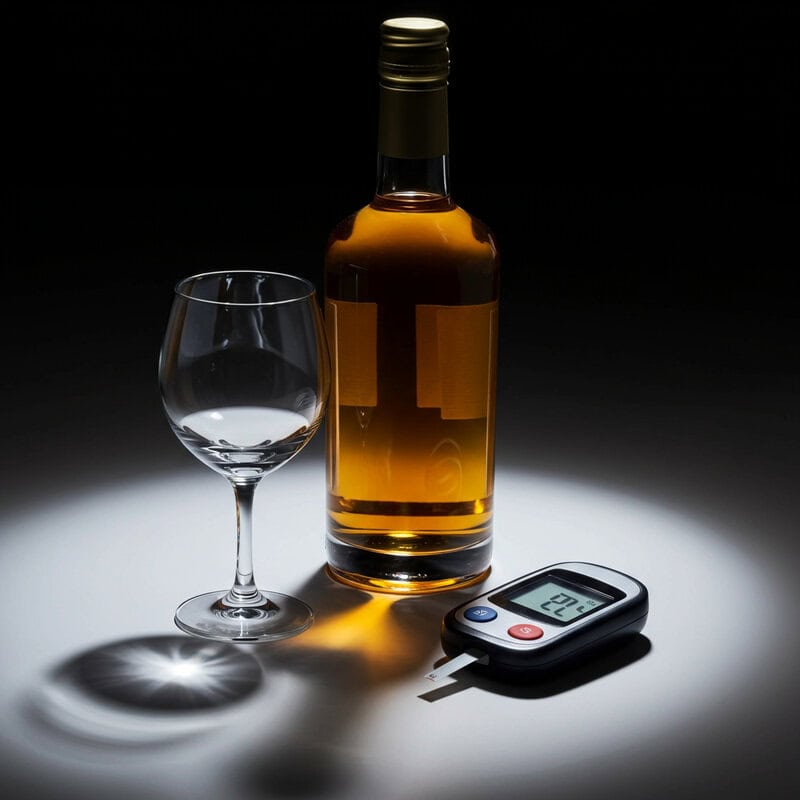
Alcohol consumption has a complex relationship with type 2 diabetes, but research consistently shows that heavy or regular drinking can increase the risk of developing this chronic condition. Alcohol affects the body’s ability to regulate blood sugar by impairing the function of the pancreas and liver, both of which are essential for insulin production and glucose management. A study published by the National Institutes of Health found that individuals who consumed higher amounts of alcohol had an elevated risk of insulin resistance and subsequent type 2 diabetes.
Further evidence from the American Diabetes Association highlights that alcohol’s empty calories and tendency to cause weight gain can further contribute to diabetes risk. To support healthy blood sugar levels, individuals are advised to limit or avoid alcohol, maintain a balanced diet rich in fiber and whole grains, and engage in regular physical activity. Monitoring blood sugar regularly, managing stress, and staying hydrated are additional strategies to help prevent type 2 diabetes. By reducing alcohol intake, individuals can protect their metabolic health and lower their chances of developing diabetes-related complications.
20. Fewer Headaches

Alcohol is a well-known trigger for headaches and migraines, with many individuals experiencing discomfort even after moderate drinking. The American Migraine Foundation explains that alcohol can cause blood vessels in the brain to expand, leading to pain, while its dehydrating effects further contribute to headache onset. Red wine, beer, and certain spirits are particularly notorious for provoking migraines in sensitive individuals.
Comparative studies have found that people who drink less or abstain from alcohol experience significantly fewer and less severe headaches compared to regular drinkers (National Institutes of Health). To prevent headaches, experts recommend limiting or avoiding alcohol altogether, staying well-hydrated before, during, and after social events, and eating balanced meals to keep blood sugar stable. Keeping a headache diary can help identify specific triggers and patterns. For those prone to migraines, choosing non-alcoholic alternatives and practicing general headache prevention strategies—such as managing stress, getting adequate sleep, and avoiding skipped meals—can make a significant difference in daily comfort and overall well-being.
21. Lower Risk of Pancreatitis

Alcohol is a leading cause of pancreatitis, an inflammatory condition of the pancreas that can be acute or chronic. Excessive or regular alcohol intake disrupts the normal function of the pancreas by stimulating excessive digestive enzyme production, which can lead to inflammation, tissue damage, and, over time, irreversible scarring. According to the National Pancreas Foundation, alcohol-induced pancreatitis is responsible for a significant number of hospitalizations and can result in severe pain, digestive issues, and increased risk of diabetes.
Clinical case comparisons show that individuals who abstain from or limit alcohol intake are far less likely to experience recurrent bouts of pancreatitis or develop chronic complications (National Institutes of Health). To support pancreatic health, experts recommend maintaining a balanced diet low in saturated fats, staying hydrated, and avoiding excessive alcohol consumption. Promptly addressing symptoms such as persistent upper abdominal pain, nausea, or unexplained weight loss with a healthcare provider is essential for early intervention. By reducing alcohol use and adopting these healthy habits, individuals can protect their pancreas and significantly lower the risk of this serious and painful condition.
22. Improved Fertility

Alcohol consumption negatively impacts hormone balance and reproductive health for both men and women. Studies indicate that even moderate drinking can disrupt menstrual cycles, ovulation, and sperm quality, reducing the chances of conception. According to the Centers for Disease Control and Prevention (CDC), alcohol can alter levels of estrogen and testosterone, leading to irregular periods in women and decreased sperm count and motility in men.
Research published in the Human Reproduction journal found that women who consumed more than moderate amounts of alcohol had a lower probability of successful conception within one menstrual cycle compared to those who drank less or abstained. To support fertility, experts recommend limiting or eliminating alcohol, maintaining a healthy weight, and following a balanced diet rich in antioxidants, vitamins, and minerals. Couples trying to conceive should also track ovulation, avoid tobacco, and manage stress. Consulting a healthcare provider or fertility specialist for personalized advice can further optimize reproductive health. By making these mindful choices, individuals and couples can enhance their chances of starting or growing a healthy family.
23. Enhanced Mood Stability

Alcohol is known to significantly influence mood, often leading to heightened emotional swings and instability. While it may initially produce feelings of relaxation or euphoria, alcohol can disrupt the balance of neurotransmitters in the brain, leading to irritability, anxiety, and depressive symptoms as its effects wear off. The Mental Health Foundation reports that regular drinkers are more susceptible to mood fluctuations and emotional volatility compared to those who abstain.
Comparative studies show that non-drinkers and individuals who reduce their alcohol intake generally experience more consistent and stable moods, with fewer episodes of anger, sadness, or anxiety (National Institutes of Health). To enhance mood stability, experts suggest adopting healthy coping strategies such as regular physical activity, mindfulness meditation, and establishing a strong social support network. Journaling, practicing gratitude, and engaging in creative outlets can also help manage stress and boost overall emotional well-being. By limiting or forgoing alcohol, individuals may find it easier to maintain emotional balance and resilience in the face of life’s challenges.
24. Stronger Bones

Heavy alcohol consumption can have a detrimental effect on bone health, increasing the risk of osteoporosis and fractures. Alcohol interferes with the body’s ability to absorb calcium and vitamin D—two nutrients essential for building and maintaining strong bones. According to the National Institute of Arthritis and Musculoskeletal and Skin Diseases, chronic drinking inhibits bone-forming cells (osteoblasts) and accelerates bone loss, especially in older adults and postmenopausal women.
Comparative studies have shown that individuals who drink heavily are at a higher risk of low bone density and osteoporosis than those who consume little or no alcohol (National Institutes of Health). To promote optimal bone health, experts recommend limiting alcohol intake, consuming a diet rich in calcium and vitamin D, engaging in weight-bearing exercise such as walking or resistance training, and avoiding smoking. Regular bone density screenings, particularly for those at increased risk, can help detect early signs of bone loss. By reducing alcohol use and adopting these proactive measures, individuals can protect their bones, reduce fracture risk, and support lifelong mobility and strength.
25. Better Oral Health

Alcohol consumption can have a significant negative impact on oral health, affecting both teeth and gums. Alcohol is acidic and can erode tooth enamel, leading to increased sensitivity and a higher risk of cavities. It also reduces saliva production, which is essential for neutralizing acids and washing away food particles, thereby creating an environment where harmful bacteria can thrive. According to the Centers for Disease Control and Prevention (CDC), people who drink heavily are more likely to experience gum disease, tooth decay, and oral cancer.
Dental health data also shows that regular drinkers are at an increased risk for oral infections and persistent bad breath compared to non-drinkers (American Dental Association). To maintain healthy teeth and gums, experts recommend limiting or avoiding alcohol, brushing and flossing twice daily, using fluoride toothpaste, and drinking plenty of water to keep the mouth hydrated. Regular dental checkups and professional cleanings are also essential for early detection and prevention of oral health problems. By making these oral hygiene practices a priority and reducing alcohol use, individuals can support a brighter, healthier smile.
26. Reduced Risk of Gout

Alcohol consumption is a well-documented trigger for gout, a painful form of arthritis caused by the accumulation of uric acid crystals in the joints. Alcohol—especially beer and spirits—increases uric acid production and decreases its elimination by the kidneys, leading to higher blood levels and a greater likelihood of gout flare-ups. According to the Centers for Disease Control and Prevention (CDC), individuals who consume large amounts of alcohol are at a significantly higher risk of developing gout compared to those who drink moderately or abstain.
Population studies have shown that countries and groups with lower alcohol intake have reduced rates of gout and related complications (National Institutes of Health). To help prevent gout attacks, experts recommend limiting or avoiding alcohol, maintaining a healthy weight, and following a diet low in purines—found in foods like red meat, shellfish, and certain processed foods. Increasing intake of fruits, vegetables, whole grains, and staying well-hydrated can also help manage uric acid levels. By adopting these dietary habits and reducing alcohol consumption, individuals can lower their risk of gout and enjoy better joint health.
27. Healthier Kidneys
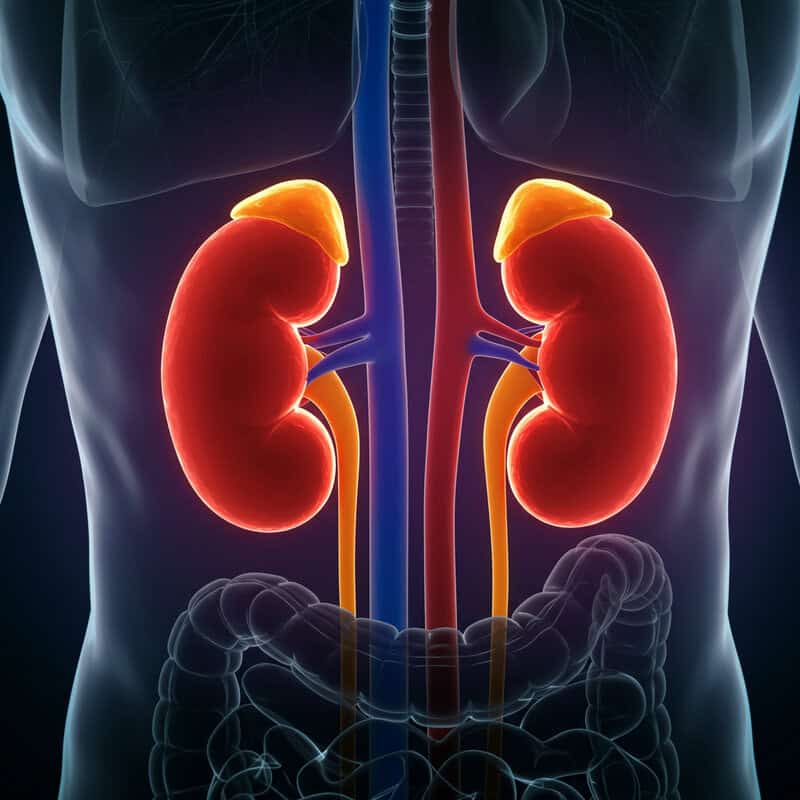
Alcohol can have a detrimental impact on kidney function due to its dehydrating effects and the added strain it places on these vital organs. The kidneys are responsible for filtering toxins from the blood and maintaining fluid and electrolyte balance, but alcohol disrupts these processes by increasing urine production and altering hormone regulation. According to research from the National Kidney Foundation, chronic heavy drinking may increase the risk of high blood pressure and chronic kidney disease (CKD), both of which can ultimately lead to kidney failure.
Nephrology studies have found that individuals who regularly consume large amounts of alcohol are more likely to experience impaired kidney function and proteinuria (the presence of excess protein in urine) compared to those with minimal or no alcohol use (National Institutes of Health). To support healthy kidneys, experts suggest limiting or avoiding alcohol, staying well-hydrated with water, consuming a balanced diet low in sodium and processed foods, and monitoring blood pressure. Regular checkups and blood tests can also help detect early signs of kidney dysfunction. By making these choices, individuals can protect their renal health and reduce the risk of kidney-related complications.
28. Lower Risk of Stroke
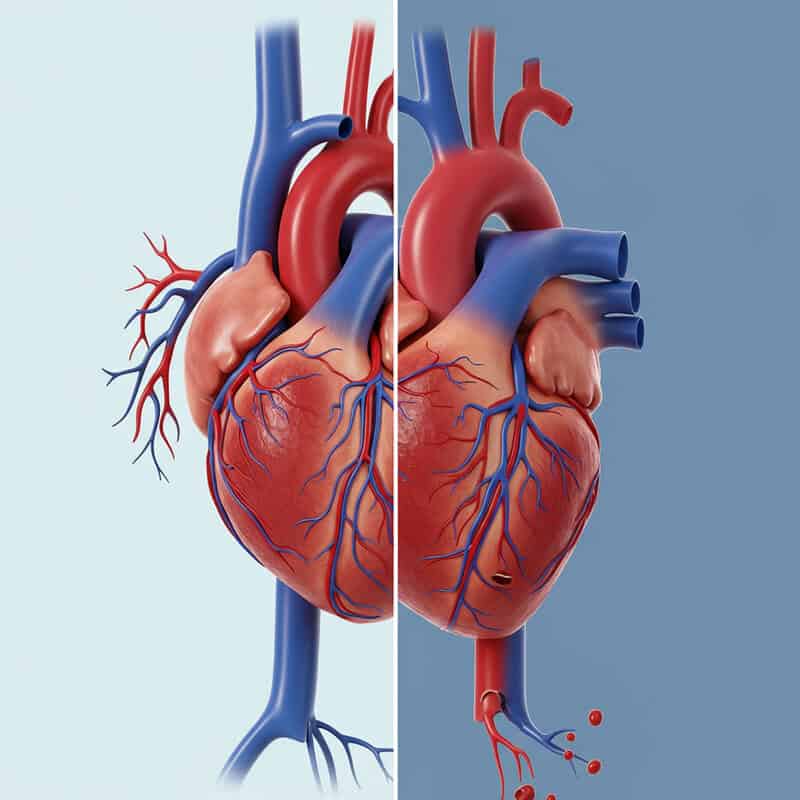
Alcohol consumption is a significant risk factor for both ischemic and hemorrhagic strokes. Drinking increases blood pressure, weakens blood vessels, and can contribute to irregular heart rhythms like atrial fibrillation, all of which elevate the likelihood of a stroke. According to the American Stroke Association, even moderate alcohol use can raise the risk, and heavy drinking dramatically increases the odds of a life-threatening event.
Comparative data show that populations with lower alcohol consumption rates, such as certain Mediterranean countries, tend to have reduced stroke incidence compared to regions where heavy drinking is more common (National Institutes of Health). To help prevent stroke, experts recommend limiting or avoiding alcohol, managing blood pressure, maintaining a healthy weight, exercising regularly, and avoiding smoking. Eating a diet low in saturated fats and high in fruits and vegetables also supports vascular health. Regular checkups to monitor cardiovascular risk factors and adopting a heart-healthy lifestyle can significantly reduce the chances of stroke and its devastating complications.
29. Improved Hormonal Balance

Alcohol consumption can significantly disrupt the body’s delicate hormonal balance, affecting everything from metabolism and stress response to reproductive health. Alcohol interferes with the function of the endocrine system by altering the production and regulation of hormones such as insulin, cortisol, estrogen, and testosterone. According to the National Institutes of Health, chronic drinking can lead to conditions like insulin resistance, increased stress hormone levels, and imbalances in sex hormones, which may result in irregular menstrual cycles, reduced fertility, or decreased libido.
Endocrine health studies show that individuals who abstain from or limit alcohol enjoy more stable hormone levels and are less likely to experience related disorders, including thyroid dysfunction and metabolic syndrome (Endocrine Society). To monitor hormonal health, experts recommend regular checkups that include blood tests for key hormones, keeping track of menstrual and sleep patterns, and noting changes in mood or energy levels. Adopting a balanced diet, managing stress, exercising regularly, and maintaining a healthy weight can further promote optimal hormone function. Reducing alcohol intake is a powerful step toward restoring and preserving the body’s hormonal equilibrium.
30. Enhanced Immune Memory

Alcohol consumption can impair the body’s ability to develop and retain immune memory, which is crucial for recognizing and effectively fighting off infections. Research from the National Institutes of Health indicates that alcohol suppresses the activity of B and T lymphocytes—cells responsible for identifying pathogens and generating long-term immunity after exposure or vaccination. As a result, people who drink heavily have a diminished response to infections and may experience less effective immune protection over time.
Studies comparing immune memory outcomes show that individuals who limit or avoid alcohol are more likely to develop robust, lasting immunity after infections or vaccinations (National Institutes of Health). To maximize immune memory and disease resistance, health experts recommend following recommended vaccination schedules for conditions such as influenza, COVID-19, and hepatitis. Maintaining a healthy lifestyle—through good nutrition, regular exercise, stress management, and adequate sleep—also supports optimal immune function. By reducing alcohol intake and staying up to date with vaccinations, individuals can help ensure their immune system “remembers” and responds efficiently to future threats.
31. Reduced Social Pressure

The recent decline in alcohol consumption across the United States is contributing to a shift in social norms, making it easier for individuals to opt out of drinking without facing significant peer pressure. As more people choose to moderate or abstain, the expectation to drink in social settings is lessening, fostering a more inclusive and supportive environment. A Pew Research Center survey found that fewer Americans now report drinking regularly compared to two decades ago, which is helping to normalize alcohol-free choices.
Comparative studies suggest that in cultures where moderate or no drinking is common, people experience less pressure to conform to group drinking behaviors (National Institutes of Health). To further reduce social pressure, experts recommend being confident and honest about personal choices, suggesting alternative activities, and seeking out social circles that support healthy habits. Communication tips include politely declining offers, bringing your own non-alcoholic beverages, and redirecting conversations to shared interests rather than alcohol. As non-drinking becomes more accepted, individuals can feel empowered to make choices that align with their values and well-being.
32. Enhanced Taste Sensation

Alcohol can temporarily numb and dull the taste buds, making it harder to fully appreciate the complexity and nuance of food flavors. Research from the National Institutes of Health shows that alcohol acts as an irritant, reducing sensitivity in the mouth and diminishing the perception of sweetness, saltiness, and subtle spices. Over time, heavy drinking may even contribute to long-lasting changes in taste perception and oral health.
Comparative studies reveal that individuals who reduce or abstain from alcohol often report a heightened ability to enjoy and distinguish flavors in their meals (Healthline). To maximize taste sensation, experts recommend eating slowly, savoring each bite, and pairing foods with water or herbal teas instead of alcoholic beverages. Experimenting with new spices, fresh herbs, and a variety of cuisines can also stimulate the palate and make mealtimes more rewarding. Practicing mindful eating—focusing on texture, aroma, and presentation—further enriches the sensory experience. By limiting alcohol, individuals can rediscover the joy of eating and develop a greater appreciation for the flavors and creativity in their food.
33. Lower Risk of Fetal Alcohol Spectrum Disorders

Drinking alcohol during pregnancy poses serious risks to a developing baby, leading to a range of lifelong physical, behavioral, and cognitive problems known as Fetal Alcohol Spectrum Disorders (FASDs). According to the Centers for Disease Control and Prevention (CDC), there is no safe amount or type of alcohol at any stage of pregnancy, as alcohol can pass directly from the mother’s bloodstream to the fetus, negatively affecting brain and organ development.
CDC data indicate that FASDs are entirely preventable, yet thousands of children in the U.S. are born each year with these disorders due to prenatal alcohol exposure. Symptoms can include facial abnormalities, growth deficiencies, learning disabilities, and difficulties with impulse control. The CDC and other health organizations strongly advise that women who are pregnant or trying to conceive avoid all forms of alcohol. Expectant parents are encouraged to communicate openly with healthcare providers, seek prenatal care early, and access resources such as CDC’s guidance on alcohol use in pregnancy. By abstaining from alcohol, parents can help ensure healthier outcomes for their children and reduce the risk of FASDs.
34. Reduced Anxiety in Social Settings

While alcohol is often used as a social lubricant to ease nerves, research shows that habitual drinking can actually increase social anxiety over the long term. Alcohol temporarily suppresses anxiety by altering brain chemistry, but repeated use can lead to heightened anxiety and dependence when sober. The Anxiety & Depression Association of America notes that people who regularly rely on alcohol in social situations are more likely to experience intensified anxiety symptoms and avoidance behaviors later.
Comparative studies have found that individuals who do not use alcohol to manage social discomfort develop stronger, more sustainable coping strategies and report lower levels of social anxiety overall (National Institutes of Health). Effective alternative coping mechanisms include practicing deep breathing, mindfulness, or progressive muscle relaxation before and during social events. Building confidence through gradual exposure and positive self-talk can also help. Engaging in structured activities, focusing on shared interests, or bringing a supportive friend to gatherings are additional ways to navigate social settings. By choosing healthier coping strategies, individuals can reduce long-term anxiety and build more authentic social connections without relying on alcohol.
35. Improved Academic Performance

Alcohol consumption has a well-documented negative impact on students’ academic performance, particularly among high school and college populations. Drinking impairs memory, concentration, and decision-making skills, which can lead to missed classes, incomplete assignments, and lower grades. A study from the National Institutes of Health found that students who binge drink are significantly more likely to experience academic difficulties compared to their peers who abstain or drink minimally.
Educational research shows that students who avoid or limit alcohol tend to have higher GPAs, better attendance, and improved retention of information (Centers for Disease Control and Prevention). To support academic success, practical tips include establishing a consistent study routine, setting realistic goals, seeking out quiet and distraction-free environments, and using active learning techniques such as summarizing and self-testing. Prioritizing sleep, maintaining a balanced diet, and participating in campus resources such as tutoring or study groups can further enhance learning. By choosing healthier habits over alcohol use, students can maximize their academic potential and set themselves up for future educational and career achievements.
36. Lower Risk of Alcohol Poisoning

Binge drinking, defined as consuming an excessive amount of alcohol in a short period, dramatically increases the risk of alcohol poisoning—a potentially fatal emergency. Alcohol poisoning occurs when blood alcohol levels rise to the point where basic life-support functions such as breathing, heart rate, and body temperature regulation are compromised. The Centers for Disease Control and Prevention (CDC) reports that an average of six people die every day in the United States from alcohol poisoning, with emergency rooms routinely treating severe cases, especially among young adults and college students.
Comparisons of ER cases consistently show that those who binge drink are at much higher risk for life-threatening complications, including respiratory depression, seizures, hypothermia, and permanent brain damage (National Institutes of Health). Warning signs of alcohol poisoning include confusion, vomiting, slow or irregular breathing, pale or blue-tinged skin, and unconsciousness. If alcohol poisoning is suspected, call 911 immediately, as delayed medical intervention can be fatal. By reducing or abstaining from heavy drinking episodes, individuals greatly decrease their risk of alcohol poisoning and its devastating consequences.
37. Healthier Pregnancy Outcomes

Alcohol consumption during pregnancy poses significant risks to prenatal development, potentially leading to miscarriage, stillbirth, premature birth, and a range of lifelong developmental disorders. The Centers for Disease Control and Prevention (CDC) emphasizes that there is no safe level of alcohol use at any stage of pregnancy, as alcohol easily crosses the placenta and can harm the developing brain, heart, and other organs of the fetus.
Examples of negative outcomes include low birth weight, physical abnormalities, cognitive and behavioral problems, and increased susceptibility to infections. Studies have shown that women who abstain from alcohol throughout pregnancy are far more likely to have full-term, healthy babies with fewer complications (March of Dimes). For a healthy pregnancy, healthcare experts recommend avoiding all forms of alcohol, seeking early and regular prenatal care, and maintaining a balanced diet rich in essential nutrients. Open communication with healthcare providers and accessing support resources can further reduce risks. By prioritizing an alcohol-free pregnancy, expectant parents can significantly enhance their baby’s chances for healthy growth and development.
38. Enhanced Longevity

Numerous studies indicate that individuals who drink moderately or abstain from alcohol altogether tend to enjoy longer lives compared to heavy drinkers. Research published in the JAMA Network Open found that higher levels of alcohol consumption are associated with increased risk of early mortality due to conditions such as cancer, liver disease, and cardiovascular complications. Conversely, populations with lower alcohol intake often report higher average life expectancy and reduced rates of chronic diseases.
For example, the Harvard T.H. Chan School of Public Health highlights that moderate or non-drinking, combined with healthy lifestyle choices, contributes to better longevity outcomes. To support a longer, healthier life, experts recommend not only limiting or avoiding alcohol but also engaging in regular physical activity, eating a nutrient-dense diet, maintaining a healthy weight, and fostering strong social connections. Regular health screenings and managing stress are also critical factors. By embracing these habits and minimizing alcohol use, individuals can significantly enhance both the length and quality of their lives.
39. Reduced Risk of Dementia

Alcohol consumption, especially in excessive amounts, is strongly linked to an increased risk of dementia and other forms of cognitive decline. Neurological studies have shown that chronic drinking damages brain cells, disrupts neurotransmitter function, and accelerates the shrinking of brain tissue, all of which contribute to memory loss and impaired thinking. According to research published in The Lancet, alcohol use disorders are associated with a significantly higher risk of early-onset dementia compared to non-drinking or light drinking populations.
Further evidence from the Alzheimer’s Society confirms that limiting or abstaining from alcohol can help protect cognitive function as people age. To further reduce dementia risk, experts recommend engaging in regular mental stimulation, maintaining strong social connections, exercising consistently, and managing cardiovascular risk factors such as hypertension and diabetes. Prioritizing a Mediterranean-style diet rich in antioxidants and healthy fats also supports brain health. By adopting these preventive measures and reducing alcohol intake, individuals can safeguard their memory and enhance their long-term cognitive well-being.
40. Decreased Risk of Hypertension

Alcohol consumption is a significant contributor to elevated blood pressure, also known as hypertension. Drinking causes blood vessels to constrict and stimulates the release of stress hormones, both of which lead to increased blood pressure levels. According to the American Heart Association, even moderate alcohol intake can raise blood pressure, while chronic heavy drinking is a major risk factor for persistent hypertension and related complications such as heart attack and stroke.
Comparative data show that populations with lower alcohol consumption have significantly lower rates of hypertension than those with higher drinking levels (National Institutes of Health). To monitor and manage blood pressure effectively, experts advise limiting or avoiding alcohol, checking blood pressure regularly at home or during medical visits, and maintaining a healthy lifestyle. This includes a diet low in sodium, regular physical activity, stress management, and maintaining a healthy weight. By making these changes and reducing alcohol intake, individuals can decrease their risk of hypertension and improve their overall cardiovascular health.
41. Stronger Family Bonds

Reducing alcohol consumption can have a profound positive effect on family dynamics, fostering healthier communication, greater trust, and stronger emotional connections. Families impacted by alcohol misuse often experience conflict, misunderstanding, and emotional distance. Real-life stories collected by organizations like Al-Anon highlight how sobriety or moderation can lead to family healing, improved relationships, and the restoration of supportive home environments.
When alcohol is no longer a source of tension, families are better able to communicate openly and resolve conflicts constructively. Children benefit from increased stability and positive role modeling, while partners often report increased intimacy and cooperation. Communication strategies that help strengthen family bonds include setting aside dedicated time for conversations, practicing active listening, expressing gratitude and appreciation, and establishing clear boundaries regarding alcohol use. Family activities such as shared meals, outdoor adventures, or volunteering together can also promote unity and connection. By choosing to reduce or eliminate alcohol, families can break cycles of dysfunction, create nurturing environments, and build lasting bonds that support the well-being of every member.
42. Lower Risk of Alcohol-Related Violence

Alcohol consumption is a major contributing factor in both domestic and public acts of violence. Studies show that alcohol impairs judgment, lowers inhibitions, and increases aggression, leading to a higher incidence of assaults, domestic violence, and other violent crimes. According to the National Council on Alcoholism and Drug Dependence (NCADD), up to 40% of all violent crimes in the United States involve alcohol, and more than half of all cases of intimate partner violence are linked to alcohol use.
Crime data from the Bureau of Justice Statistics further reveal that alcohol-related violence disproportionately affects families and communities, resulting in significant emotional and physical harm. Prevention resources such as The National Domestic Violence Hotline and Mothers Against Drunk Driving (MADD) offer support and intervention for those affected. By reducing alcohol intake—individually and collectively—communities can lower the risk of violent incidents, create safer environments, and foster healthier, more respectful relationships at home and in public spaces.
43. Improved Respiratory Health
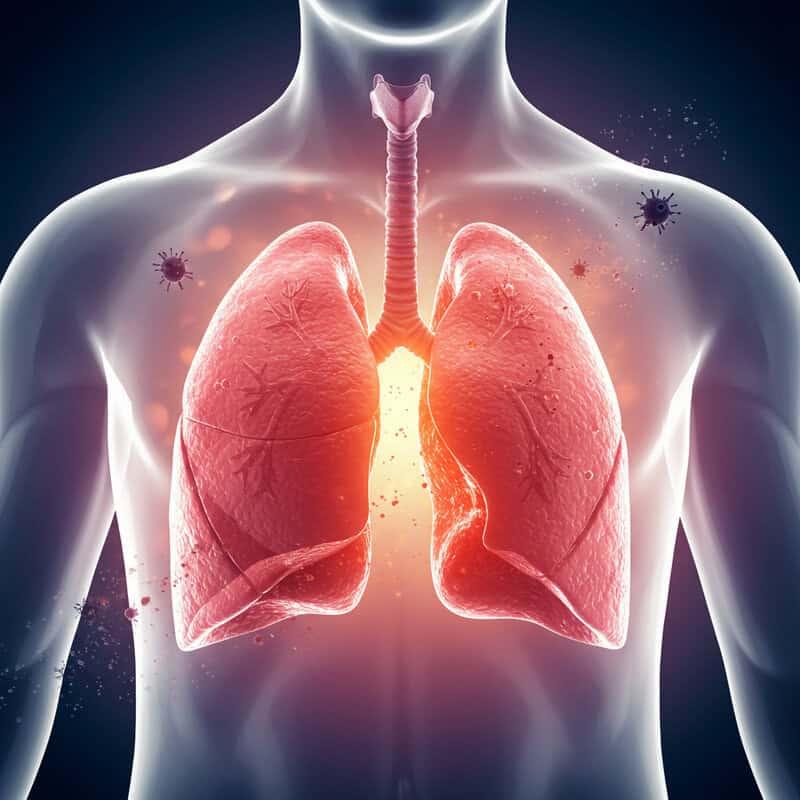
Alcohol consumption has been linked to an increased risk of respiratory infections, including pneumonia and bronchitis. According to the American Lung Association, alcohol impairs the immune system’s ability to fight off infections in the lungs and can damage the cells lining the respiratory tract, making it easier for pathogens to take hold. Heavy drinkers are particularly vulnerable, with studies showing a higher incidence and severity of respiratory infections compared to non-drinkers or those who consume alcohol in moderation.
Comparative research published by the National Institutes of Health confirms that individuals who reduce or abstain from alcohol are less likely to suffer from recurrent lung infections and experience better overall respiratory health. To protect lung function, experts recommend limiting alcohol, avoiding smoking and exposure to secondhand smoke, getting vaccinated against influenza and pneumonia, and practicing good hygiene. Regular exercise and breathing exercises can also strengthen lung capacity. By making these healthy choices, individuals can reduce their risk of respiratory complications and support long-term lung health.
44. Better Balance and Coordination

Alcohol significantly impairs the function of the cerebellum, the part of the brain responsible for regulating balance, coordination, and motor control. When alcohol enters the bloodstream, its depressant effects slow the communication between nerve cells in the cerebellum, resulting in clumsiness, unsteady gait, and delayed reaction times. According to research from the National Institutes of Health, people who consume alcohol, even in moderate amounts, are more likely to experience falls and injuries due to compromised coordination.
Accident data show that alcohol-related impairment is a major factor in emergency room visits for falls, particularly among older adults and those with underlying health conditions (CDC). To reduce the risk of falls and improve balance, experts recommend limiting or abstaining from alcohol, engaging in regular physical activity focused on strength and flexibility, and making home environments safer by removing tripping hazards and installing grab bars in bathrooms. Wearing supportive footwear and staying mindful of medications that can affect balance are also important. By making these adjustments, individuals can enjoy greater confidence, mobility, and independence.
45. More Energy

Alcohol disrupts the body’s natural energy metabolism by interfering with how nutrients are absorbed and processed, leading to increased feelings of fatigue and sluggishness. When consumed, alcohol is prioritized for metabolism over carbohydrates, fats, and proteins. This can result in unstable blood sugar levels and depleted energy stores, especially if drinking is frequent or excessive. According to the National Institutes of Health, regular drinkers often report persistent tiredness and difficulty maintaining stamina throughout the day.
Comparative studies show that individuals who reduce or abstain from alcohol experience greater energy, improved mood, and enhanced focus in both work and daily activities (Sleep Foundation). To naturally boost energy, experts recommend adopting a balanced diet rich in whole grains, fruits, and vegetables, staying well-hydrated, and prioritizing consistent sleep routines. Regular physical activity and taking short breaks during the day can also increase alertness and vitality. By cutting back on alcohol and embracing these healthy habits, individuals often notice a significant and lasting improvement in their overall energy levels and zest for life.
46. Healthier Aging
Alcohol consumption accelerates many age-related declines, including cognitive impairment, muscle and bone loss, and increased susceptibility to chronic diseases. Alcohol’s toxic effects can damage cells, increase oxidative stress, and interfere with the body’s natural repair processes, contributing to premature aging. According to the National Institutes of Health, long-term heavy drinking is associated with visible signs of aging, such as wrinkles, sagging skin, and diminished mobility, as well as higher rates of cardiovascular disease and dementia.
Comparative research shows that individuals who limit or abstain from alcohol tend to age more gracefully, maintaining better physical and mental function in their later years (National Institute on Aging). To promote healthy aging, experts recommend regular physical activity, a diet high in antioxidants and lean protein, staying socially engaged, and getting adequate sleep. Routine health screenings and proactive management of chronic conditions are also key. By reducing alcohol intake and adopting these healthy routines, people can slow the effects of aging and enjoy a higher quality of life well into their senior years.
47. Reduced Risk of Alcohol-Induced Psychosis

Heavy and prolonged alcohol use can result in serious psychiatric complications, including alcohol-induced psychosis—a rare but potentially devastating condition characterized by hallucinations, delusions, paranoia, and disorganized thinking. According to psychiatric studies published by the National Institutes of Health, this form of psychosis most often occurs in individuals with chronic alcohol dependence, particularly during periods of intoxication or withdrawal.
Unlike primary psychotic disorders, alcohol-induced psychosis is directly triggered by substance use and may subside with prolonged abstinence and medical intervention. Researchers have found that heavy drinkers are significantly more likely to experience acute episodes of psychosis compared to those who moderate or abstain (British Journal of Psychiatry). Warning signs include severe confusion, hearing or seeing things that aren’t there, extreme agitation, and an inability to distinguish reality from fantasy. Immediate medical help is essential if these symptoms are observed. By reducing alcohol intake, individuals can significantly lower their risk of experiencing these acute mental health crises and protect their long-term psychiatric well-being.
48. Improved Gut Microbiome

Alcohol consumption can significantly disrupt the balance of beneficial bacteria in the gut, leading to a less diverse and less resilient microbiome. Studies from the National Institutes of Health reveal that regular or heavy drinking alters gut flora composition, increasing harmful bacteria while reducing populations of microbes that support digestion, immunity, and mental health. This imbalance can contribute to digestive discomfort, inflammation, weakened immunity, and even mood disorders.
Comparative research shows that individuals who abstain from or limit alcohol have healthier, more diverse gut microbiomes and lower rates of gastrointestinal issues (Gut Microbiota for Health). To support gut health, experts recommend reducing alcohol intake and incorporating probiotic-rich foods such as yogurt, kefir, sauerkraut, kimchi, and kombucha into the diet. Eating a variety of fiber-rich fruits, vegetables, and whole grains also nourishes beneficial bacteria. By embracing these dietary habits and drinking less alcohol, individuals can promote a thriving gut microbiome, which in turn supports overall digestive, immune, and mental well-being.
49. Lower Risk of Sudden Cardiac Death

Alcohol consumption, especially in excessive amounts, has been linked to an increased risk of fatal heart arrhythmias, which can lead to sudden cardiac death. Alcohol can disrupt the electrical signaling in the heart, causing irregular rhythms such as atrial fibrillation and ventricular fibrillation. According to cardiology research published in the American Heart Association’s Circulation journal, heavy and binge drinking episodes significantly raise the risk of sudden cardiac events, even in otherwise healthy adults.
Comparative studies show that populations with lower alcohol consumption rates experience fewer incidents of alcohol-related arrhythmias and sudden cardiac death (National Institutes of Health). To protect heart health, cardiologists recommend limiting or abstaining from alcohol, maintaining a healthy diet rich in fruits, vegetables, and whole grains, engaging in regular physical activity, and managing risk factors like hypertension and high cholesterol. Regular medical checkups and monitoring heart rhythm can help detect problems early. By reducing alcohol intake and adopting heart-healthy habits, individuals can significantly lower their risk of life-threatening cardiac events and promote long-term cardiovascular wellness.
50. Greater Sense of Control

Choosing not to drink can provide a powerful psychological boost, fostering a greater sense of control and self-efficacy in everyday life. Research has shown that individuals who limit or abstain from alcohol often experience increased self-esteem, improved decision-making, and a deeper sense of empowerment. A study published by the National Institutes of Health found that people who successfully reduced their alcohol intake reported higher levels of self-control and personal accomplishment compared to those who struggled with moderation.
Comparative self-efficacy data reveal that non-drinkers or those who choose mindful moderation consistently score higher on measures of psychological well-being, stress management, and resilience. To further cultivate this sense of empowerment, experts suggest setting clear personal boundaries, practicing regular self-reflection, and celebrating milestones—however small. Engaging in activities that reinforce autonomy, such as learning new skills, volunteering, or participating in group support, can also enhance self-confidence. By making conscious decisions around alcohol, individuals reclaim authority over their choices and daily routines, ultimately leading to a more satisfying, purpose-driven life.
Conclusion

The nationwide trend of declining alcohol consumption marks a vital shift toward better health and well-being for Americans. As research demonstrates, reducing alcohol intake is linked to lower risks of chronic disease, improved mental clarity, and stronger relationships (CDC). The urgent health benefits—from disease prevention to enhanced quality of life—cannot be overstated. Practical steps such as scheduling regular health screenings, setting personal goals, and engaging with supportive communities or resources like Alcoholics Anonymous can help sustain these positive changes. By embracing mindful choices and prioritizing well-being, individuals and communities alike can look forward to healthier, happier futures.
Disclaimer
The information provided in this article is for general informational purposes only. While we strive to keep the information up-to-date and correct, we make no representations or warranties of any kind, express or implied, about the completeness, accuracy, reliability, suitability, or availability with respect to the article or the information, products, services, or related graphics contained in the article for any purpose. Any reliance you place on such information is therefore strictly at your own risk.
In no event will we be liable for any loss or damage including without limitation, indirect or consequential loss or damage, or any loss or damage whatsoever arising from loss of data or profits arising out of, or in connection with, the use of this article.
Through this article you are able to link to other websites which are not under our control. We have no control over the nature, content, and availability of those sites. The inclusion of any links does not necessarily imply a recommendation or endorse the views expressed within them.
Every effort is made to keep the article up and running smoothly. However, we take no responsibility for, and will not be liable for, the article being temporarily unavailable due to technical issues beyond our control.





